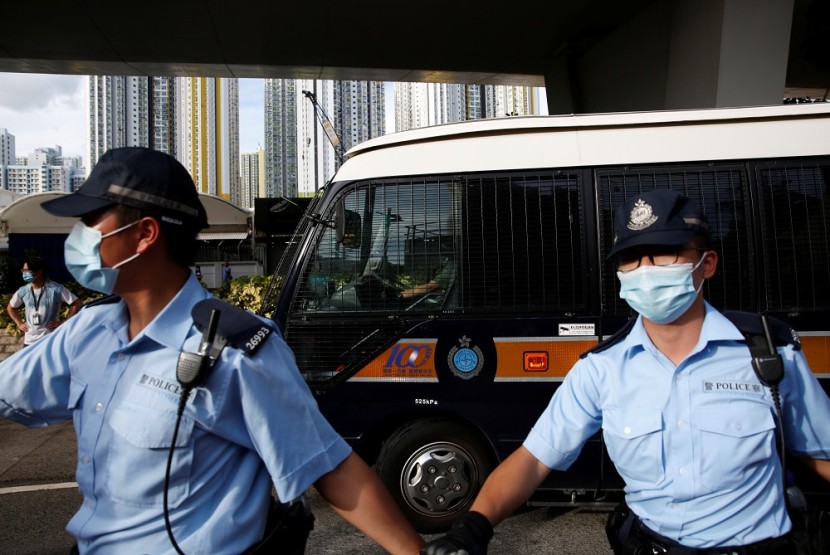
Chinese-Australian freethinker artist Badiucao was in search of a place in Hong Kong to showcase his artworks in 2019. Many of his works denounce the Chinese Communist Party.
According to Badiucao, he would not even transfer through the Hong Kong airport to avoid being taken into custody due to Beijing's new national security law.
The new Hong Kong security law into action has been put into action by China. A 23-year-old man was the first person on Monday to be arrested.
The Hong Kong administration underscores that free speech is not being silenced. However, according to the city's public library system on Saturday, books authored by acclaimed activists had been removed from circulation, reported Firstpost.
China campaigned for support from 53 nations to back the disputable law in the midst of vehement resistance from other governments.
The United Nations Human Rights Council's 44th session became the site of opposing international retaliation to the newly carried out national security law in Hong Kong. In the session last week, 2 contending statements were read back to back. Cuba represented a cluster of 53 states supporting the Chinese law, while the UK spoke on behalf of 27 opposing governments, according to The Diplomat.
Hong Kong police officials will be permitted without a warrant to initiate searches at private properties. They will restrict suspects' movements, obstruct communications, freeze the suspects' assets, and command internet service providers to delete information, as more powers were transferred to the force for implementing the national security law, reported Hong Kong Free Press.
The broad-ranging new law for Hong Kong would make it more convenient to hold protesters accountable and diminish the city's autonomy.
Critics have labeled the advent "the end of Hong Kong."
Following his appearance in court, the first person to be prosecuted under the city's extensive national security law has been denied bail.
Tong Ying-kit was arrested for instigating severance and terrorist actions and is alleged of plunging his motorbike into a cluster of police officers. He injured at least 3 at a protest favoring democracy on Wednesday.
The new security law was first implemented on July 1.
Facebook, Twitter, and Google are halting data processing requests from the Hong Kong administration as they evaluate the security law. Google particularly made the pause immediately when the law took effect.
Washington Post indicated that the national security law China implemented on Wednesday is concerning for numerous reasons: There are serious limitations imposed on free speech in Hong Kong, and the law authorizes officials to take suspects from Hong Kong and try them in mainland China.
According to 7 new implementation measures for enforcement agencies, failure to observe the law will result to being fined HK$100,000 (US$12,900) and a maximum of 2 years' imprisonment.
The new measures were deliberated at the Committee for Safeguarding National Security's first meeting, spearheaded by Chief Executive Carrie Lam Cheng Yuet-ngor. Police, finance, security, immigration, and justice chiefs served as members.
Related Article : China City Bans Eating Cats and Dogs Amid Coronavirus
© 2026 HNGN, All rights reserved. Do not reproduce without permission.








